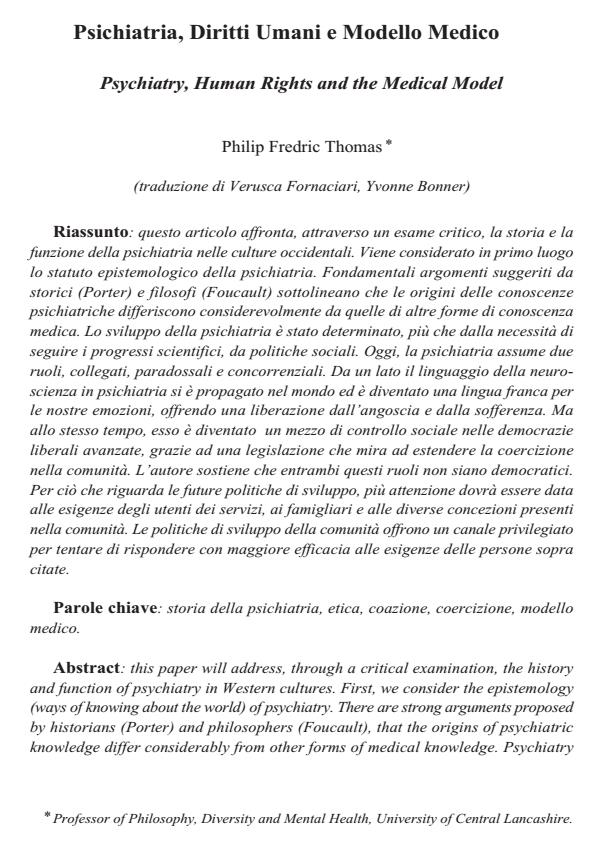Psichiatria, Diritti Umani e Modello medico
Journal title RIVISTA SPERIMENTALE DI FRENIATRIA
Author/s Philip Fredric Thomas
Publishing Year 2007 Issue 2007/3
Language Italian Pages 9 P. 51-59 File size 466 KB
DOI
DOI is like a bar code for intellectual property: to have more infomation
click here
Below, you can see the article first page
If you want to buy this article in PDF format, you can do it, following the instructions to buy download credits

FrancoAngeli is member of Publishers International Linking Association, Inc (PILA), a not-for-profit association which run the CrossRef service enabling links to and from online scholarly content.
This paper will address, through a critical examination, the history and function of psychiatry in Western cultures. First, we consider the epistemology (ways of knowing about the world) of psychiatry. There are strong arguments proposed by historians (Porter) and philosophers (Foucault), that the origins of psychiatric knowledge differ considerably from other forms of medical knowledge. Psychiatry did not develop out of necessity through scientific advances, but through social policy. Today, psychiatry has two complex, related, paradoxical and competing roles. On the one hand the language of neuroscience in psychiatry has spread across the world and becomes a lingua franca for our emotions, offering us liberation from distress and suffering. But at the same time it has also become a tool of social control in advanced liberal democracies, with legislation aimed at coercion being extended into the community. I argue that both these roles are undemocratic. In terms of future policy and developments, more attention must be paid to the interests of service users, carer groups, and different faith communities. Community development offers a way of trying to attend more closely to these interests.
Philip Fredric Thomas, Psichiatria, Diritti Umani e Modello medico in "RIVISTA SPERIMENTALE DI FRENIATRIA" 3/2007, pp 51-59, DOI: